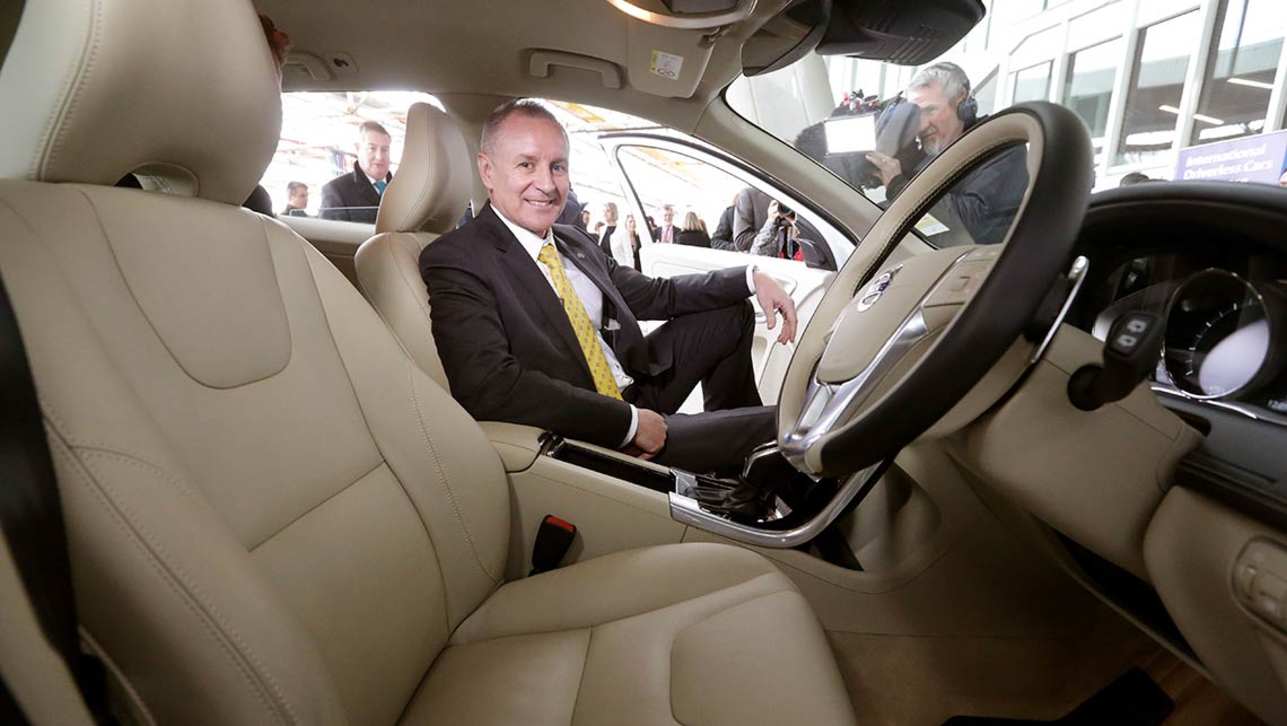Driverless cars will take to Australian roads for the first time in November in a trial to pave the way for new laws to integrate the technology into the daily commute.
A fully automated Volvo XC90 will be tested on a closed section of Adelaide's Southern Expressway in real-life driving scenarios with other vehicles such as changing lanes, emergency braking and using the on and off ramps.
Trials of driverless valet services between Flinders University campuses at Tonsley Innovation Park and at Adelaide Airport would also coincide with a world conference on the technology in Adelaide on November 5 and 6.
Independent road research body ARRB Group has joined the South Australian government, Bosch, Telstra, Cohda Wireless and Volvo to run the trials to establish how driverless technology should be engineered and manufactured for local driving behaviour, climate, road conditions, markings, surfaces, roadside signage and other factors.
South Australian Transport Minister Stephen Mulligan said the trials would inform legislative change as early as next year to allow driverless cars on the state's roads.
Legislation would also be based on laws in California, Britain and Sweden, to "find a balance between giving cars the prescripted amount of freedom with the community expectation for safety".
The necessary hardware was already being built into new roads in South Australia, including the $620 million Darlington Upgrade project in Adelaide's south, he said. It would allow driverless vehicles to interact with the traffic network on congestion, speed limits and road condition information.
The government announced reforms to the Motor Vehicles Act in February, noting the act had been written in the late 1950s, when the FB Holden was first released.
It's predicted that within just 15 years, the international driverless car industry will be worth $90 billion
Premier Jay Weatherill said the technology would improve safety, reduce congestion and provide an economic opportunity for the state. "It's predicted that within just 15 years, the international driverless car industry will be worth $90 billion, so we want to encourage other global businesses to come to South Australia to develop and test their technologies," he said.
Volvo Australia technical manager David Pickett said the Australian trial was an expansion of its Swedish "Drive Me" project which aimed to have 100 automated cars in the hands of customers by 2017. He said fully automated cars on freeways and in heavy traffic would give "some lost time back" to commuters.
Alongside General Motors, BMW, Audi, Ford, Mercedes and Tesla, Volvo would maintain a manual component to all vehicles as it aimed to have no injuries from its new cars from 2020.
Bosch Australia Chassis Systems Control regional president Mark Jackman said driverless cars would reduce the 90 per cent of accidents caused by human error.
Engineers at his company were working with Volvo on integrating current automated systems to control an entire car.


.jpg)


.jpg)









.jpg)

.jpg)





.jpg)




Comments